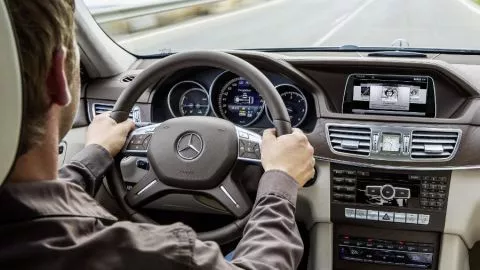fear of driving-amaxophobia- centro psicológico conducir
El miedo a conducir es uno de los problemas más habituales con los que el conductor español se encuentra. De hecho, afecta a más del 33% de aquellos que toman el volante, según un informe del Instituto Mapfre de Seguridad Vial, de los que un 64% son mujeres. Pero, ¿qué es exactamente la amaxofobia? ¿Quién la sufre? Y lo que es más importante: ¿es posible superar el miedo a conducir? ¿Podemos volver a disfrutar de una conducción segura?
In Seville, America Palace driving school has been working since 2005 with registered psychologists to treat fear of driving at the Centro Psicológico Menéndez Pelayo 23. Mª Teresa Bellido, teacher and psychologist at the center, together with the trainer Juan Bautista Pérez, from Autoescuela Ordás, explain the keys to understanding amaxophobia.
What is fear of driving?
According to Bellido, "amaxophobia is the pathological fear of driving or riding in a vehicle. It is a disorder that is classified as an anxiety disorder and, as such, it does not have a single cause".
"Fear is an adaptive psychological mechanism necessary for survival, the problem arises when this mechanism is not well 'adjusted'. Fear of driving is the result of how we interpret situations and how we value our capacity and ability to solve them," says Perez.
Why does fear of driving occur?
There is a myth about the origins of amaxophobia that links it to victims or witnesses of traffic accidents. Instead, fear of driving can arise from several factors. Some as simple as the fact that you don't like driving. You may have become accustomed to using public transport and have lost practice behind the wheel. Or simply that over the years the levels of worry and fear tend to increase.
 Who suffers from fear of driving?
Who suffers from fear of driving?
"According to the studies carried out on this disorder, we would find three different groups of drivers. People who suffer from anxiety due to their personality characteristics that favor the appearance of such disorders, such as: excessively responsible people, controllers, perfectionists, etc. People who suffer post-traumatic stress due to having suffered or seen a traffic accident. And those who lack certain knowledge about driving techniques, which causes different situations in which they have few resources to get out of them," Bellido explains.
Although it can affect anyone, there is a recurrent profile affected by amaxophobia, according to the Mapfre Road Safety Institute report: over 40 years old and mostly women. However, the constraints of a macho upbringing cause many men to repress this fear. Masculinity and gender roles are often closely linked to driving: "many men may not express that they suffer from it because it is less socially accepted for a man to be afraid of driving. Also, amaxophobia has no age. Even children can be affected by it (fear of riding in a car)," Bellido explains.
"It is not only related to trauma following an accident/incident, there are people who have not had an accident, or do not even drive and are affected by this problem," Perez qualifies.
However, regardless of their gender and age, all drivers who suffer from it make excuses to avoid driving until they forget.
Bellido lists the most common symptoms that characterize this phobia:
- Generalized anxiety and nervousness.
- Tachycardia and palpitations.
- Nerves in the stomach.
- Sweating of the hands.
- Vertigo.
- Tremor in extremities.
- Muscle and neck pain.
- Hyperventilation (shortness of breath).
How to overcome amaxophobia?
Fear of driving is treatable and solvable. The treatment process for amaxophobia operates on three levels. Identification of the problem in each person to see how it develops and to what extent it affects him/her. Exercising techniques that allow to dominate the fear. And psychological programming to gradually resume driving. The Ordás Driving School states that "the first step is a personal interview and, depending on the problem, we will act. We are trainers, and when necessary we rely on psychologists and technology such as virtual reality".
The Centro Psicológico Menéndez Pelayo 23 maintains that "there are no complicated cases, only longer ones. We must be clear that we want to be the ones who manage our lives and not our fear".
Some organizations such as the European Automobile Commission orthe DGT organize workshops to treat the fear of driving with the help of professionals who guide them until they are able to drive again with peace of mind. Undoubtedly, seeking the advice of psychology professionals in specialized centers such as the Centro Psicológico Menéndez Pelayo 23, will favor safe and, above all, healthy driving.
If you want to continue improving your driving, don't miss the tips in the series of articles How to drive like a professional.


